CRS 2013: Motivation
While current robotic systems are getting closer to repeating a carefully-coded action, they are still far from human’s versatility and adaptivity. Future robotic systems are expected to exhibit a level of cognition whereby they can replicate human activities, taking into consideration their own capabilities and limitations. In essence, robots are expected to be capable of understanding, generalizing, empathizing and replicating human behavior to achieve autonomous learning in the fullest sense of the word: understanding through sensing and encoding, generalizing by extracting higher-level understanding from low-level sensing data, empathizing by developing a sense of context-dependent interpretation, and replicating to replicate the observed behavior even in novel contexts.
Realizing cognitive robotics and systems (CRS) will require advances along the complete processing pipeline, from sensing through learning to acting. Sensing will need to capture and digest a person's complex activity and map it to the robot's framework; whilst learning will need to exploit knowledge in the form of stored data gained from observation of human actions. These are challenging tasks which are likely to require step changes in current state of the art capability.
In this workshop we aim at stimulating discussion towards addressing practical daily life and industrial problems by means of cognitive robotics concepts and technologies, specifically geared to encoding and regeneration of human action. We will bring together researchers from relevant disciplines to exchange ideas and results towards the goal of developing cognitive systems that can replicate human behaviors in an unsupervised manner. This will include those working in sensing, such as speech and vision, machine learning and AI, motion planning and estimation, with applications in domestic and industrial domains.
This workshop is the second in a series of workshops targeting aspects of cognitive systems. Last September, we organized an IROS workshop entitled Cognitive Assistive Systems: Closing the Action-Perception Loop.
Invited Speakers
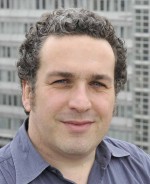 |
Prof. Oliver BrockHead of Robotics and Biology Laboratory,TU of Berlin, Germany |
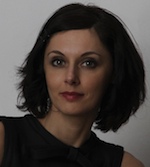 |
Prof. Danica KragicDirector of Centre for Autonomous Systems,KTH, Sweden |
 |
Prof. Yukie NagaiGraduate School of Engineering,Osaka University, Japan |
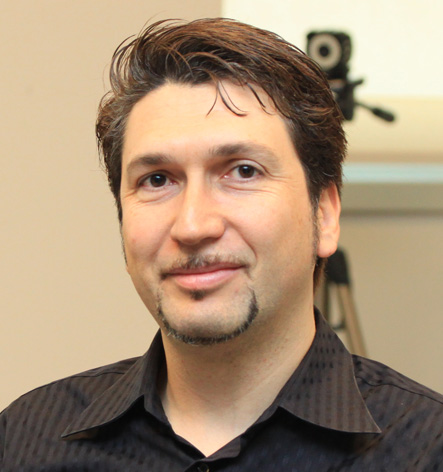 |
Prof. Erhan OztopHead of Communication and Cognitive Cybernetics Group,Ozyegin University, Turkey |
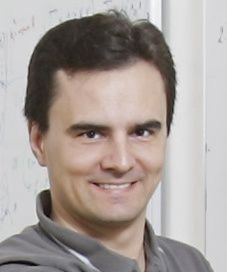 |
Prof. Jan PetersIntelligent Autonomous Systems,TU Darmstadt, Germany |
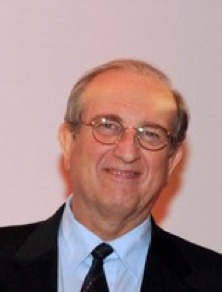 |
Prof. John TsotsosHead of Active and Attentive Vision Lab,York University, Canada |
Call for Contributions
The workshop will be held on November 3, 2013 as part of the IEEE/RSJ International Conference on Intelligent Robots and Systems (IROS 2013) in Tokyo, Japan. We warmly welcome contributions in three formats: papers, extended abstracts and discussion questions. Discussion questions are short questions that will be read to the panel of invited speakers during the workshop, to trigger discussions.
Instructions and important dates for the submission of each contribution type are given below. Accepted papers will be published in the official IROS workshop proceedings. Papers, extended abstracts, and discussion questions will be published on the workshop's webpage. The authors of accepted papers and extended abstracts will have 5 to 20 minutes to present their work at the workshop.
Contributions are encouraged in the following areas:
- Robot imitation and learning by demonstration
- Symbiotic interaction between robots and humans
- Motion and activity capture
- Robot grasping, tools and object manipulation
- Visual perception and representation of 3D information
- Motion planning and motion generation
- Adaptive and unsupervised activity learning
- Workflow monitoring and activity recognition
PAPERS
We welcome the submission of papers describing novel work in one of the areas covered by the workshop.
| Format | 4–6 pages, with optional video |
| Submission deadline | 27th of August, 2013 (23:59 CET) |
| Review/Selection | Single-blind, two reviewers |
| Notification of acceptance | 17th of September, 2013 |
| Camera-ready | 27th of September, 2013 |
| Publication | IROS WS Proceedings, CRS2013 Website |
| Presentation | Oral |
Papers should be formatted according to the manuscript preparation guidelines for IROS. Papers should be submitted in PDF via EasyChair. The PDF file size is limited to 10MB.
Authors are encouraged to submit a live demo or a video showcasing their work. Accompanying videos can also be uploaded via the submission system. We accept the following formats: MPEG-1 stream within a .MPG container, or MPEG-4 stream (H.264 recommended) within a .MP4 container. The maximum file size is 20MB.
EXTENDED ABSTRACTS
We welcome the submission of extended abstracts describing novel or recent work, as well as work in progress.
| Format | 1–2 pages, with optional video |
| Submission deadline | 20th of September, 2013 (23:59 CET) |
| Review/Selection | Selected by the organizers |
| Notification of acceptance | 27th of September, 2013 |
| Camera-ready | n/a |
| Publication | CRS2013 Website |
| Presentation | Oral |
Extended abstracts should be formatted according to the manuscript preparation guidelines and should be submitted in PDF via EasyChair. PDF file size is limited to 10MB.
Authors are encouraged to submit a live demo or a video showcasing their work. Accompanying videos can also be uploaded via the submission system. We accept the following formats: MPEG-1 stream within a .MPG container, or MPEG-4 stream (H.264 recommended) within a .MP4 container. The maximum file size is 20MB.
DISCUSSION QUESTIONS
This workshop will experiment with a novel type of contribution: discussion questions. We welcome the submission of questions related to one of the areas covered by the workshop. Selected questions will be read by the organizers to the invited speakers during the panel discussion, to trigger discussions.
| Format | Less than 200 words |
| Submission deadline | 20th of October, 2013 (23:59 CET) |
| Review/Selection | Selected by the organizers |
| Notification of acceptance | 3rd of November, 2013 |
| Camera-ready | n/a |
| Publication | CRS2013 Website (authors may request to remain anonymous) |
| Presentation | The question will be posed by one of the organizers, attendance of the authors is not required. |
Questions should be submitted via EasyChair. On the submission page, the question should be written in the Abstract box. No file should be uploaded, and the Abstract Only checkbox should be checked. By default, discussion questions will be posted on the website along with author names. If an author wishes to remain anonymous, the title of the question must begin with the word ANONYMOUS.
Program Committee
Erol Sahin, Middle East Technical university, Ankara, TurkeyIsil Bozma, Bogazici University, Istanbul, Turkey
-- to be completed --
Workshop Organizers
Gabriele Bleser, DFKI, GermanyMaya Cakmak, Willow Garage, USA
Dima Damen, University of Bristol, UK
Renaud Detry, University of Liege, Belgium
Lazaros Nalpantidis, Aalborg University, Denmark
Mustafa Suphi Erden, EPFL, Switzerland
